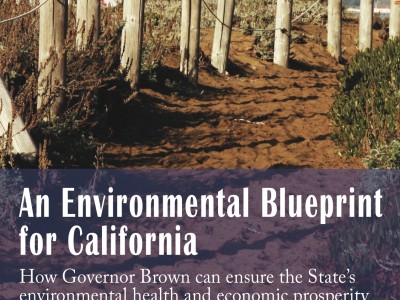Obama’s 80% “Clean” Energy Goal: Ambitious or Inevitable?
In a recent post on Grist, Keith Schneider found President Obama's 80% "clean" energy goal rather incredible: Arguably the central provision of President Obama's State of the Union address last night was the proposal to generate 80 percent of the nation's electricity from clean energy sources by 2035 -- including nuclear energy and "carbon capture and storage" coal technology. Getting there will take a miracle, the same sort of pie in the sky thinking that allowed our p...
CONTINUE READINGCan Obama’s Car Emissions Deal Work for Utilities?
Politico ran a little noticed article last week suggesting that the nation's utilities are exploring whether they can cut a deal with the Obama Administration to regulate their greenhouse gas emissions. The idea is to model a deal after the plan the car companies entered into with the Obama Administration to extend California's car carbon standards nationwide. If Obama could strike such a deal with the utilities he could credibly claim to have crafted far reaching c...
CONTINUE READINGLegal Planet Nomination
Legal Planet has been nominated as one of the top fifty environmental blogs. To find out more and learn how to have input into nomination process and vote on the final selections, please go to the Lexis-Nexis website. We're very pleased to have made the initial list, given Lexis-Nexis's standards: For the first time, this Community will recognize the thought leaders who share their expertise-and their divergent points of view-with the online world by awarding an honor...
CONTINUE READINGGood for Consumers, Good for the Planet?
California Governor Jerry Brown’s appointment of Mike Florio, a well-known, life-long consumer advocate, to a seat on the California Public Utilities Commission raises an interesting question for those who view the world primarily through green-colored glasses. What does a consumer advocate have to offer toward the advancement of an environmental agenda – at least in the energy utility world? There was a time when consumer and environmental priorities seemed to ha...
CONTINUE READINGCalifornia Environmental Blueprint: Environmental monitoring & modeling
This post is the second in our ongoing series on our Environmental Blueprint for California. In our Blueprint, we recommended that Governor Brown establish an independent, statewide agency or council devoted to compilation, modeling, prediction and presentation of environmental quality data. I want to elaborate on what this agency might look like and why we believe such an agency is important to California's environmental future. To briefly summarize our Blueprint, we ...
CONTINUE READINGThe State of the Union Address: Good on Energy, MIA on Climate
President Obama's State of the Union address had good news for research universities and for renewable energy: We'll invest in biomedical research, information technology, and especially clean energy technology - an investment that will strengthen our security, protect our planet, and create countless new jobs for our people. Already, we are seeing the promise of renewable energy. In terms of renewable energy, he added: "I challenge you to join me in setting a new goal: ...
CONTINUE READINGObama’s Cost-Benefit Executive Order
Last week, President Obama issued a new executive order on cost-benefit analysis The order also promised a retrospective review of old rules to weed out the duds. Business interests were pleased, environmentalists were dismayed. Politically, the new executive order makes perfect sense. To be reelected and keep control of the Senate, he needs to win over independent voters who supported the GOP in November. To avoid policy disasters like refusal to raise the deb...
CONTINUE READINGThe BP Oil Spill and the Disappearing Louisiana Coast
In his book Bayou Farewell, Mike Tidwell tells some haunting stories about the rapid disappearance of the Louisiana coast from his time with Cajun fisherman. Here's one story: “We all pile into the crab boat and Tim tells his son to head down the bayou. A few hundred feet away . . . Time points toward a watery stretch of march grass oddly littered with bricks and concrete. “’It’s a cemetery,’ he says. “There, shockingly, along the grassy bayou bank, I c...
CONTINUE READINGCalifornia Environmental Blueprint: Protect and Restore Funding
This post is part of an ongoing series on our Environmental Blueprint for California, released by UCLA Law last week. I'll talk about the first--and, in many ways, most fundamental--recommendation in our paper: that Governor Brown do what he can to protect and restore stable, robust funding for our State’s core environmental initiatives. My coauthors and I recognize that any conversation about the State’s priorities has to begin with the reality of our broken bud...
CONTINUE READINGNice Start on That Renewable Power, LADWP — Now Get to Work!
In a blog entry on January 14th, Ann Carlson offered strokes to the Los Angeles Department of Water and Power for announcing success in reaching its goal of 20% renewable power. Ann appropriately pointed out that much work lies ahead for LADWP, since most of the new renewable power came in the form of short term contracts. Firming up a significant renewable percentage will take concerted effort. It is laudable that LADWP has made as much progress as it has in ad...
CONTINUE READING




